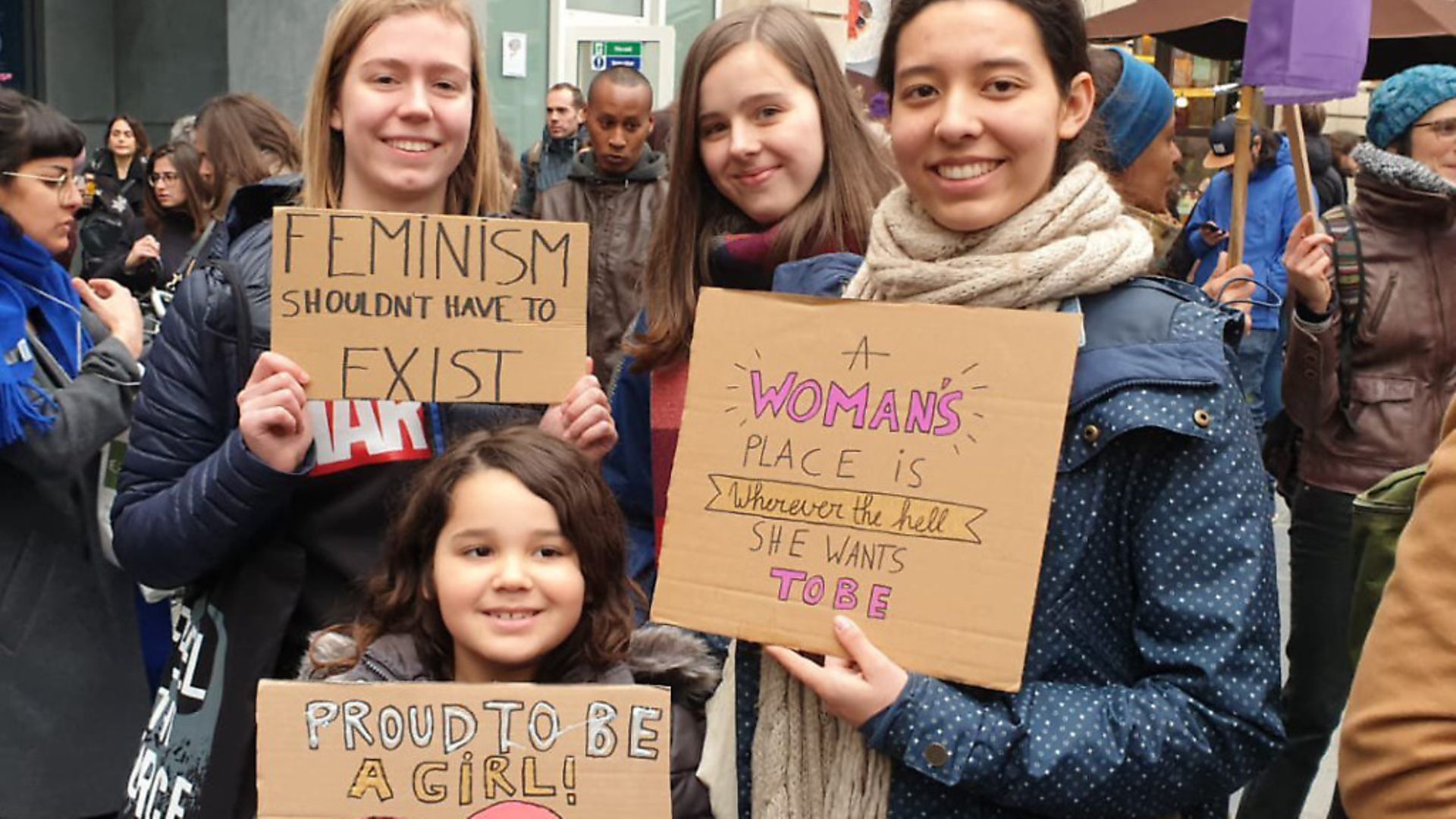
Free from EU laws and initiatives to improve the lives of women, MARY HONEYBALL asks what equality would look like in post Brexit Britain.
Women have been largely non-existent during the Brexit process. The agenda remains male dominated. Female voices are hardly ever heard and gender equality is nowhere to be seen.
EU rights and protections for women will go out of the window if and when the UK leaves the EU. Those who want Brexit on WTO terms would, once the deed was done, indulge in a bonfire of regulations in order to eliminate hard-won human rights legislation and rights for people at work. Protections for women would, of course, be included in this conflagration.
But it’s not just no-deal that causes concern. There was no mention of women or gender equality in Theresa May’s original draft of the 2018 European Union (Withdrawal Act) which, despite Boris Johnson’s efforts, remains the relevant legislation.
One amendment subsequently added a brief mention. Post-Brexit, it would be possible for future governments to amend, replace and revoke key rights, protections and standards as these would no longer be guaranteed by EU law.
Regulatory alignment which may have allowed at least some of the gender equality protections to continue has been jettisoned by Johnson.
The gender equality legislation the UK already possesses would almost certainly be at risk from the kind of government Boris Johnson is seeking to lead after December 12.
The 2010 Equality Act, a strong piece of UK legislation, would become very vulnerable. The fact that the UK does not have a written constitution means the Equality Act, and much other legislation, would not be constitutionally protected after Brexit.
If and when Brexit happens, the potential loss of the EU protection floor for gender equality – EU legislation and the Charter of Fundamental Rights – could mean that the Equality Act and other progressive legislation would be exposed to alteration and even repeal by future governments.
This is no idle threat. Theresa May’s government consistently rejected proposals and amendments to the 2018 Withdrawal Act to maintain current rights and protections post-Brexit. She appeared content to see the back of the EU Charter of Fundamental Rights, a huge loss which would mean less power to protect rights for women, and also to do away with the 2006 and 2010 Equalities Acts.
May even rejected a non-regression clause on EU equality law. The House of Commons Women and Equalities Committee heavily criticised the government for its failure to sufficiently protect equality law post-Brexit.
EU legislation guarantees women’s most basic protections at work. If women were to lose the rights afforded by it, the UK would see a return to the pre-Second World War dark age. The EU Pregnant Workers Directive, opposed by Conservative governments, allows paid time off for ante-natal appointments, protection from dismissal when pregnant together with maternity leave and pay entitlement. The Part-Time Workers Directive makes equal rights and treatment for part-time workers a legal necessity, important since three-quarters of part-timers are women. Women also benefit from the EU Agency Workers Directive as the growing majority of agency workers are women. Despite being opposed by successive British governments, the EU Working Time Directive aids women in that it encourages the balancing of paid and unpaid labour.
The legislation is not the only consideration. The jurisdiction of European Court of Justice and EU case law, due to be removed after any Brexit arrangement negotiated by Boris Johnson, have played a progressive role in ensuring gender equality in the UK. The loss of input from the ECJ will inevitably result in legal uncertainty and confusion.
Britain would also lose out on future EU initiatives on gender equality and much else. The EU has recently passed a Work-Life Balance Package looking at paternity and carers’ leave. A Directive to increase the number of women on the boards of top companies is also in the pipeline. The European Union has a dynamism regarding gender equality which is sorely lacking at government level in the UK.
Leaving the European Union would not only endanger existing provision, it would also cut Britain off from the source of most of the legislation which has benefitted women during the past fifteen or so years. The European Parliament has a Women’s Rights and Gender Equality Committee, the only committee with legislative powers dedicated solely to women’s rights covering the whole of the United Kingdom. As well as passing laws, the Committee campaigns on gender equality issues, raising awareness and putting pressure on EU Member States. Outside the EU, Britain would be free to ignore all the ideas and all the measures from the EU intended to improve the lives of both women and men. Boris Johnson’s Brexit day would indeed be a dark day for women.
Warning: Illegal string offset 'link_id' in /mnt/storage/stage/www/wp-includes/bookmark.php on line 357
Notice: Trying to get property 'link_id' of non-object in /mnt/storage/stage/www/wp-includes/bookmark.php on line 37






